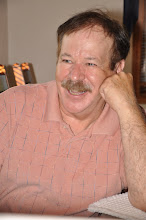
Broke camp on Tuesday morning and returned to Shiloh National Park.
The park is well maintained and features a bookstore, visitors center, the Shiloh National Cemetery.
In addition, there is a nine mile self-guided tour route around the park that is marked by cannons and placards which recount the specific battle scene and the Confederate advance. A short film in the visitors center gives a good account of the events of the two day battle as well as to alert one of things to look for when driving around on the self-guided tour.
Although the Union troops were located at Pittsburg (sic) Landing on the banks of the Tennessee
River, the Battle of Shiloh is named for the Shiloh Church (see photo of reconstructed Shiloh Church) built by the settlers a short distance from the banks of the Tennessee River at Pittsburg Landing.
April 5, 1862:
At this time, Grant held a false sense of optimism and believed that the confederates posed no immediate threat. In actuality the Confederates led by Major General Albert Sidney Johnston were already advancing on Pittsburg Landing.

On the afternoon of April 5, 1862, Colonel Everett Peabody, in command of the Union's 25th Missouri Infantry, were on a
reconnaissance patrol about two miles outside the main encampment, when they were engaged by the Confederates, in a surprise attack, and quickly retreated.
The next the day Confederates led a charge on the Union troops and a fierce day of fighting ensued, with heavy losses on both sides. During that first day of fighting, General Johnston received a stray bullet behind the knee. The bullet struck a main artery and he later bled to death with a tourniquet, which could have saved his life, still in his pocket!
Major General Albert Sydney Johnston was the highest ranking officer to be lost, by either side, during the entire Civil War, and his loss was a major blow to the South, and initially, in an effort to not dishearten the troops, his passing was kept a secret.

On the 7th of April, Major General P. G. T. Beauregard (of Fort Sumpter fame) replaced General Johnston. Beauregard believed that with the Union forces weakened, victory was close at hand. Unfortunately for him, he was unaware that the Union Army, having been reinforced overnight with troops from Colonel Don Carlo Buell's Ohio Battery and a division of troops led by Brigadier General Lew Wallace, now represented a force of over 45,000 troops (Confederacy forces, by comparison, numbered no more than 28,000 troops).
In addition, two ironclads from the Tennessee River had shelled the Confederate alignment throughout the night, affording them little rest and softening their position.
With this turn of events, history recorded a Union victory, but at a tremendous loss of lives on both sides. Despite, the Union's tactical victory, they suffered greater losses than the vastly outnumbered confederates.
In total 23,746 lives were lost in that single, two day battle. That was more than all the lives that had been lost in all of America's previous wars. The news of the loss of lives, set a new tone for the war and foretold of an ominous future that, heretofore, both sides had thought would be of short duration.









